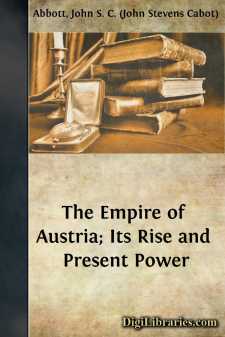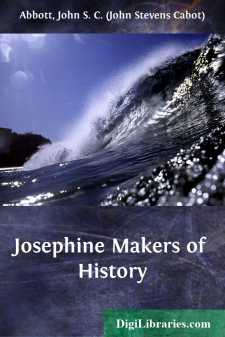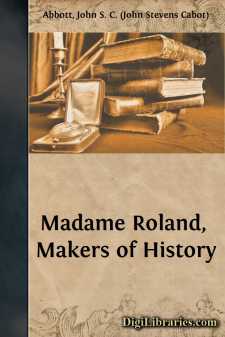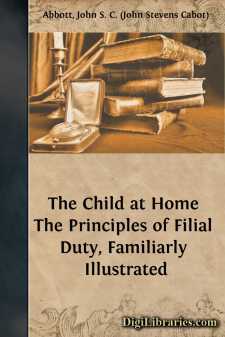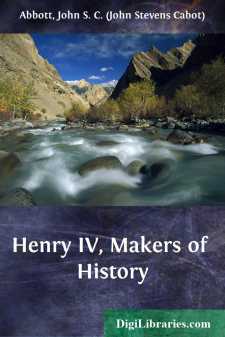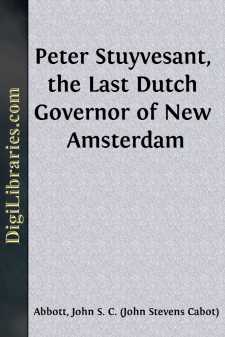Categories
- Antiques & Collectibles 13
- Architecture 36
- Art 48
- Bibles 22
- Biography & Autobiography 815
- Body, Mind & Spirit 144
- Business & Economics 28
- Children's Books 18
- Children's Fiction 14
- Computers 4
- Cooking 94
- Crafts & Hobbies 4
- Drama 346
- Education 58
- Family & Relationships 59
- Fiction 11835
- Games 19
- Gardening 17
- Health & Fitness 34
- History 1378
- House & Home 1
- Humor 147
- Juvenile Fiction 1873
- Juvenile Nonfiction 202
- Language Arts & Disciplines 89
- Law 16
- Literary Collections 686
- Literary Criticism 179
- Mathematics 13
- Medical 41
- Music 40
- Nature 180
- Non-Classifiable 1768
- Performing Arts 7
- Periodicals 1453
- Philosophy 65
- Photography 2
- Poetry 896
- Political Science 203
- Psychology 44
- Reference 154
- Religion 515
- Science 126
- Self-Help 85
- Social Science 83
- Sports & Recreation 34
- Study Aids 3
- Technology & Engineering 60
- Transportation 23
- Travel 463
- True Crime 29
Our website is made possible by displaying online advertisements to our visitors.
Please consider supporting us by disabling your ad blocker.
The Empire of Austria; Its Rise and Present Power
Description:
Excerpt
CHAPTER I.
RHODOLPH OF HAPSBURG.
From 1232 to 1291.
Hawk's Castle.—Albert, Count of Hapsburg.—Rhodolph of Hapsburg.—His Marriage and Estates.—Excommunication and its Results.—His Principles of Honor.—A Confederacy of Barons.—Their Route.—Rhodolph's Election as Emperor of Germany.—The Bishop's Warning.—Dissatisfaction at the Result of the Election.—Advantages Accruing from the Possession of an Interesting Family.—Conquest.—Ottocar Acknowledges the Emperor; yet breaks his Oath of Allegiance.—Gathering Clouds.—Wonderful Escape.—Victory of Rhodolph.—His Reforms.
In the small canton of Aargau, in Switzerland, on a rocky bluff of the Wulpelsberg, there still remains an old baronial castle, called Hapsburg, or Hawk's Castle. It was reared in the eleventh century, and was occupied by a succession of warlike barons, who have left nothing to distinguish themselves from the feudal lords whose castles, at that period, frowned upon almost every eminence of Europe. In the year 1232 this castle was occupied by Albert, fourth Count of Hapsburg. He had acquired some little reputation for military prowess, the only reputation any one could acquire in that dark age, and became ambitious of winning new laurels in the war with the infidels in the holy land. Religious fanaticism and military ambition were then the two great powers which ruled the human soul.
With the usual display of semi-barbaric pomp, Albert made arrangements to leave his castle to engage in the perilous holy war against the Saracens, from which few ever returned. A few years were employed in the necessary preparations. At the sound of the bugle the portcullis was raised, the drawbridge spanned the moat, and Albert, at the head of thirty steel-clad warriors, with nodding plumes, and banners unfurled, emerged from the castle, and proceeded to the neighboring convent of Mari. His wife, Hedwige, and their three sons, Rhodolph, Albert and Hartman, accompanied him to the chapel where the ecclesiastics awaited his arrival. A multitude of vassals crowded around to witness the imposing ceremonies of the church, as the banners were blessed, and the knights, after having received the sacrament of the Lord's Supper, were commended to the protection of God. Albert felt the solemnity of the hour, and in solemn tones gave his farewell address to his children.
"My sons," said the steel-clad warrior, "cultivate truth and piety; give no ear to evil counselors, never engage in unnecessary war, but when you are involved in war be strong and brave. Love peace even better than your own personal interests. Remember that the counts of Hapsburg did not attain their heights of reputation and glory by fraud, insolence or selfishness, but by courage and devotion to the public weal. As long as you follow their footsteps, you will not only retain, but augment, the possessions and dignities of your illustrious ancestors."
The tears and sobs of his wife and family interrupted him while he uttered these parting words....


